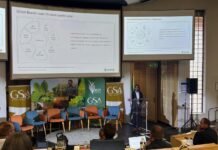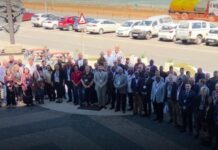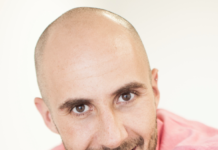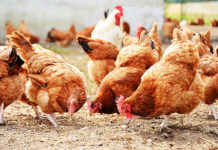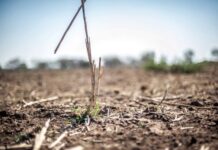Products and services from the University of the Free State (UFS) Department of Pharmacology related to traditional medicines research and development will be on display at an exhibition at the first World Health Organisation (WHO) Traditional Medicine Global Summit in India.
Prof Motlalepula Matsabisa, an African traditional medicine expert and Director of the Department of Pharmacology, will attend the summit after being invited to serve as a member of the Summit External Advisory Group for the WHO Traditional Medicine Global Summit, as well as in his capacity as co-chair of the WHO Global Traditional Medicines Centre and as chair of the WHO Regional Advisory Committee on Traditional Medicines for COVID-19. Prof Matsabisa will deliver a presentation on traditional medicines and intellectual property in a session titled ‘Regulations, intellectual property and implementation: Ensuring patient safety and economic efficiency in developing and adopting innovations in TM to healthcare’.
The WHO will hold its Traditional Medicine Global Summit on 17 and 18 August 2023 in Gandhinagar, Gujarat, India, alongside the G20 health ministerial meeting. The summit is organised by the WHO Global Centre for Traditional Medicine collaborating closely with WHO major offices.
Tea, medicine, and laboratories on show
Vusi Paul Ncume, a master’s student in pharmacology and practicing traditional health practitioner, and Tebogo Machethe, Director for Innovation and Contracts in the UFS Directorate of Research Development (DRD), will attend the summit alongside Prof Matsabisa.
Macheche will take part in a session on ‘Innovation, Entrepreneurship and Equitable Sharing of Benefits derived from utilization of Indigenous knowledge’. The summit has also approved and supported the participation of Thobeka Kentane, an experienced traditional health practitioner with a legal background. She is also a member of the UFS Pharmacology working group of experts, headed by Prof Matsabisa, which is reviewing South Africa’s main medicines act and drafting recommendations around a regulatory framework for commercial production of South African traditional medicines.
“We will also be exhibiting our laboratories and work undertaken in these laboratories,” Prof Matsabisa said. “More importantly, this is to showcase the science behind the products. The products we are exhibiting includes our medicines – PHELA for immune reconstitution, and now repurposed for COVID-19 and long COVID. We will also show the science and the research and development undergone to get PHELA where it is. This will include all scientific publications of PHELA.
“Secondly, we will also exhibit our new entrants to the market – our indigenous health teas products. Pharmacology will be introducing six totally new health teas into the market, and we will showcase their medicinal benefits scientifically endorsed by the African Medicines Innovation and Technology Development Platform (AMITD) and Pharmacology. We market these teas as ‘Drinking tea for a reason, not because it is teatime’. These teas will shake the tea industry market. So, we are introducing these products into the global market.”
Purpose of the summit
According to Prof Matsabisa, the objective of the summit is to catalyse political commitment and collective action towards the evidence- and equity-based integration and equal co-existence of traditional medicine for the health and wellbeing of people and the planet. There will be 350 WHO-invited participants and a further 200 Government of India-invited participants. The event will also be live-streamed.
“At the end of the WHO Traditional Medicines Summit, I hope that serious and practical resolutions will be taken around the aspects of contribution of traditional medicines into integrated health, into the planetary health, as well as application in overall health and wellbeing.
“I hope to see more serious attention being given to traditional medicines research support, traditional medicine’s contribution to health systems and traditional medicine’s contribution to formal economies in Africa. I hope for the mutual acceptance of well researched, quality, safe, and effective traditional medicinal products sold and used across the six WHO regions, with little bottlenecks. India holds the current G20 Presidency, and next year the G20 Presidency is Brazil and South Africa. So, I hope that the resolutions made at the August G20 will then be carried over by the next G20 Presidency.”



